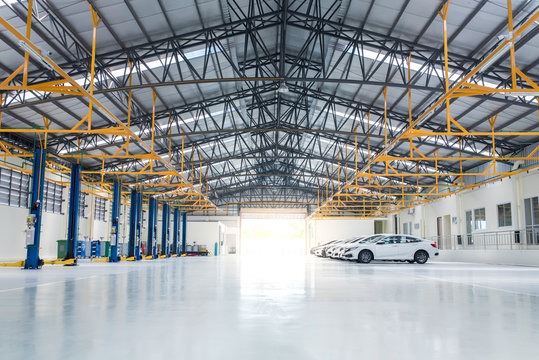Concrete is a popular and versatile building material, but it can be susceptible to damage from wear, tear, chemicals, and stains. Fortunately, a variety of concrete coatings can enhance its durability, aesthetics, and functionality. However, with several options available, selecting the right coating can be overwhelming. This article delves into three popular types of concrete coatings – epoxy, polyurethane, and polyaspartic – to help you navigate the concrete jungle and choose the best option for your project.
The Ever-Reliable Epoxy:
Epoxy coatings are the undisputed champions of durability in the concrete coating arena. They boast exceptional chemical resistance, making them ideal for protecting surfaces from harsh chemicals found in garages, warehouses, laboratories, and food processing facilities. Their superior adhesion creates a strong bond with the concrete, reducing the risk of peeling or flaking. Additionally, epoxy coatings are highly abrasion-resistant, making them perfect for high-traffic areas like commercial kitchens, showrooms, and retail floors.
Applications:
- Garages
- Warehouses
- Laboratories
- Food processing facilities
- Commercial kitchens
- Showrooms
- Retail floors
Things to Consider:
- Cost: Epoxy coatings are generally more expensive than other options.
- Installation: The installation process can be more complex and requires meticulous surface preparation for optimal adhesion.
- Chemical sensitivity: Epoxy coatings emit strong fumes during application, necessitating proper ventilation and safety precautions.
- Curing Time: Curing times can vary depending on the specific epoxy product, but they typically take longer than other coatings.
The Flexible Force: Polyurethane
Polyurethane coatings offer a compelling balance of durability and flexibility. While not quite as chemically resistant as epoxies, they excel in areas prone to movement and vibration. Their elasticity allows them to bridge minor cracks and prevent them from expanding. Polyurethane coatings are also known for their exceptional UV resistance, making them a great choice for exterior concrete surfaces like patios, walkways, and pool decks. Additionally, they offer excellent abrasion resistance and a high-gloss finish, ideal for showrooms and retail spaces.
Applications:
- Patios
- Walkways
- Pool Decks
- Showrooms
- Retail spaces
- Parking decks
- Manufacturing facilities (moderate chemical exposure)
Things to Consider:
- Chemical resistance: While good, it may not be suitable for highly corrosive environments.
- Scratch resistance: While scratch-resistant, it may not be as durable as epoxy in high-traffic areas with heavy machinery.
- Maintenance: Regular cleaning is essential to maintain the high-gloss finish.
The Speedy Specialist: Polyaspartic
Polyaspartic coatings are the new kids on the block, but they’re making a big splash. These coatings offer a unique combination of speed and durability. They cure significantly faster than epoxy and polyurethane, allowing for a quicker return to service – a crucial factor for businesses that cannot afford downtime. Polyaspartics also boast excellent chemical resistance and abrasion resistance, making them suitable for industrial applications. Additionally, they are VOC-compliant, meaning they emit minimal harmful fumes during installation.
Applications:
- Food processing facilities (fast curing minimizes downtime)
- Manufacturing facilities (moderate chemical exposure)
- Warehouses
- Commercial kitchens
- Garages (fast curing allows for quicker use)
- High-traffic areas (hospitals, schools)
Things to Consider:
- Cost: Polyaspartic coatings are generally the most expensive option.
- Availability: Skilled applicators may be less readily available compared to epoxy and polyurethane installers.
- Limited color options: The color palette for polyaspartic coatings may be more limited than other options.
The Verdict: It Depends
There’s no single “best” coating for all concrete surfaces. The ideal choice depends on several factors, including:
- Traffic level: High-traffic areas require more durable coatings like epoxy or polyaspartic.
- Chemical exposure: For harsh chemicals, epoxy reigns supreme.
- UV exposure: Polyurethane is the clear winner for exterior applications.
- Budget: Epoxy is generally the most affordable, while polyaspartic is the most expensive.
- Application time: Polyaspartic offers the fastest turnaround time.
Conclusion
Understanding the strengths and limitations of epoxy, polyurethane, and polyaspartic coatings empowers you to make an informed decision for your concrete project. Remember, consulting with a professional contractor can be invaluable in selecting the right coating for your specific needs and budget. With the right choice, your concrete surfaces will not only be protected but also add aesthetic appeal and functionality for years to come.

